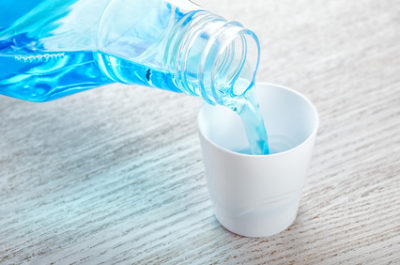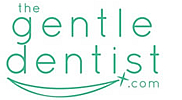By: Jessica Wendt, RDH
 Who doesn’t love that feeling of minty fresh breath that comes from swishing with mouthwash? Even though most people would answer “yes,” the question is whether mouthwash is for everyone and should it be used daily. Mouth rinses, like most things in dentistry, are not “one size fits all.” There are hundreds of mouth rinses on the market with each one designed to meet specific dental needs. Some are considered cosmetic (no true health benefit) while others are therapeutic (contain health benefits).
Who doesn’t love that feeling of minty fresh breath that comes from swishing with mouthwash? Even though most people would answer “yes,” the question is whether mouthwash is for everyone and should it be used daily. Mouth rinses, like most things in dentistry, are not “one size fits all.” There are hundreds of mouth rinses on the market with each one designed to meet specific dental needs. Some are considered cosmetic (no true health benefit) while others are therapeutic (contain health benefits).
Cosmetic mouthwash may leave a pleasant taste, but its benefit will be temporary. There is no chemical agent in these mouthwashes that actually kill the bacteria that cause bad breath, so the benefit is considered solely cosmetic. On the other hand, therapeutic mouthwash contains active ingredients that help reduce conditions like cavities, plaque, gum inflammation, and bad breath. According to the American Dental Association (ADA), look for active ingredients listed as: cetylpyridinium chloride, chlorhexidine, essential oils, fluoride, and peroxide.
Each of these ingredients has a different benefit to offer. A fluoride mouth rinse is beneficial for those prone to cavities. It helps to prevent decay by remineralizing enamel in the teeth. Whitening mouthwashes may contain peroxide, which helps to reduce staining and lighten the color of teeth. Chlorhexidine and essential oils are used to control plaque and gingivitis, while cetylpyridinium chloride is added to reduce bad breath according to the American Dental Association. Most therapeutic mouth rinses are available over the counter, however some require a prescription especially those that contain chlorhexidine.
Even though using mouthwash has its benefits that were discussed above, there are also risks that should be considered. There has been an ongoing debate on whether there is a link between mouthwashes that contain alcohol and oral cancer. The ADA states that a recent review failed to find a strong association between the two since mouthwash isn’t ingested. However, alcohol-containing mouth rinses are not advised for those with dry mouth because it can worsen the condition. Also, alcohol in mouthwash can increase tooth sensitivity for some and can irritate existing canker sores. Some mouth rinses may cause your oral tissues to slough, or shed, at a faster rate than normal leaving stringy saliva leftover in your mouth. Dr. Antolak has noticed this with Crest ProHealth mouthwash. It is also important to note that children under the age of 6 should not use mouthwash because of the risk of swallowing it.
Mouthwash is not considered a cure for any oral condition, but it can be a helpful aide. It should never be used in place of brushing and flossing. If good oral hygiene habits are in place and cavities, gum disease, and bad breath aren’t present, then using a mouthwash isn’t really necessary. You can use one if you would like, but some dentists may tell you to spend your money elsewhere. As a dental hygienist, I do not use a mouth rinse on a consistent basis because of my regular brushing and flossing habits. There are times when I have used a fluoride mouthwash to prevent cavities and a whitening mouthwash to brighten my smile, but I do not use them on a long-term basis. However, some people do benefit from long-term mouthwash use and their dentist may recommend them to do so.
It is always advised to ask for your dentist’s recommendation on if you should use a mouth rinse, and if so, what type to use. When selecting a mouthwash, always check to make sure it has the ‘ADA Seal of Acceptance.’ This means that the mouth rinse company has provided scientific evidence to the American Dental Association that proves the safety and effectiveness of their product. Also, make sure to read the specific instructions on your selected mouthwash because some need to be used before you brush and some need to be used after brushing. It is important to swish with the rinse for the specified time as well otherwise it may not be as effective.
To learn more about our office, please contact us at 586-247-3500 or visit us at www.TheGentleDentist.com. We are always accepting NEW patients!
